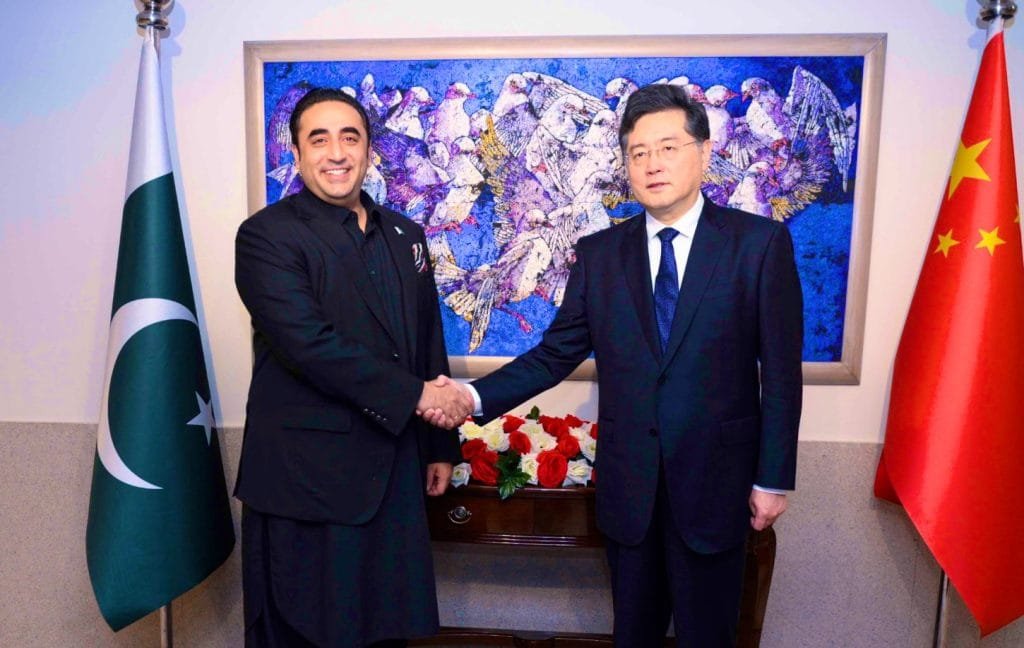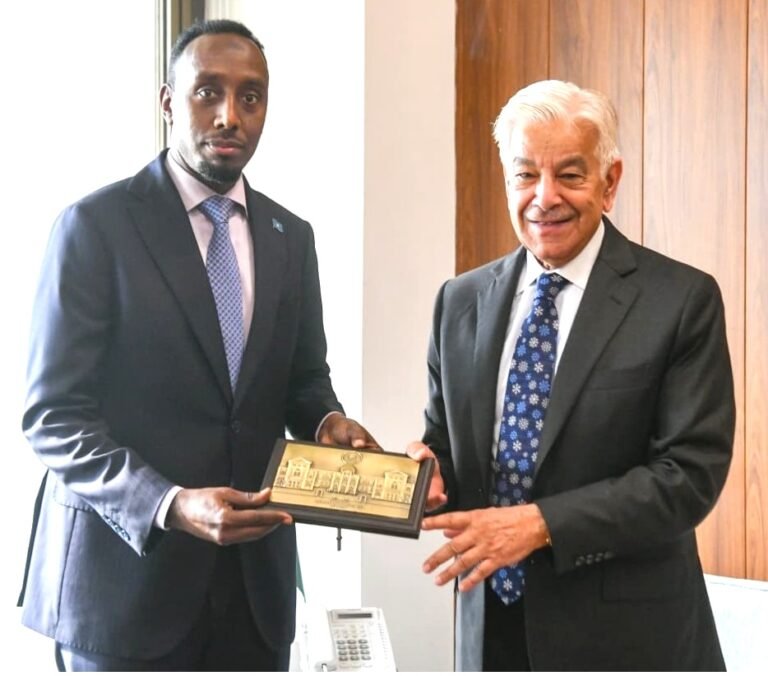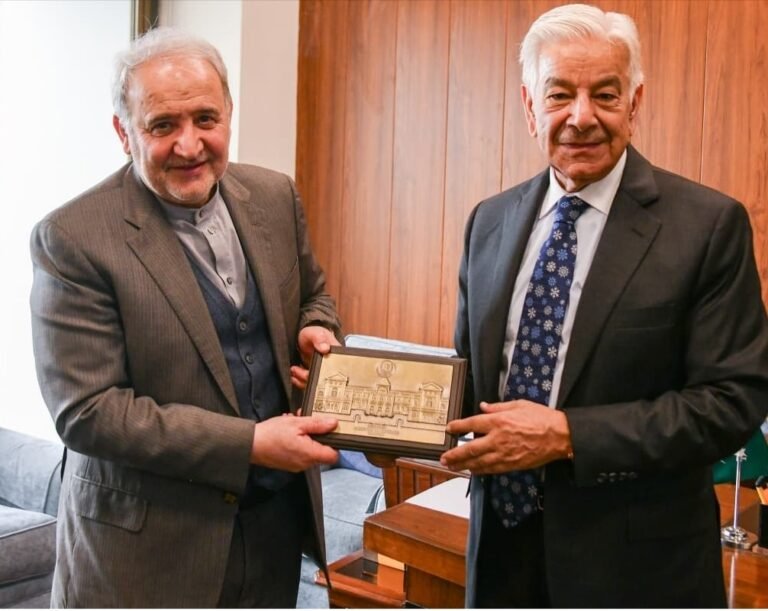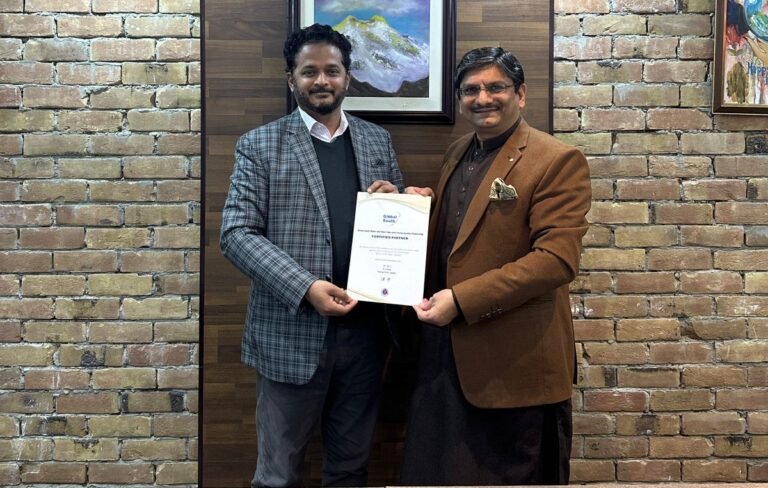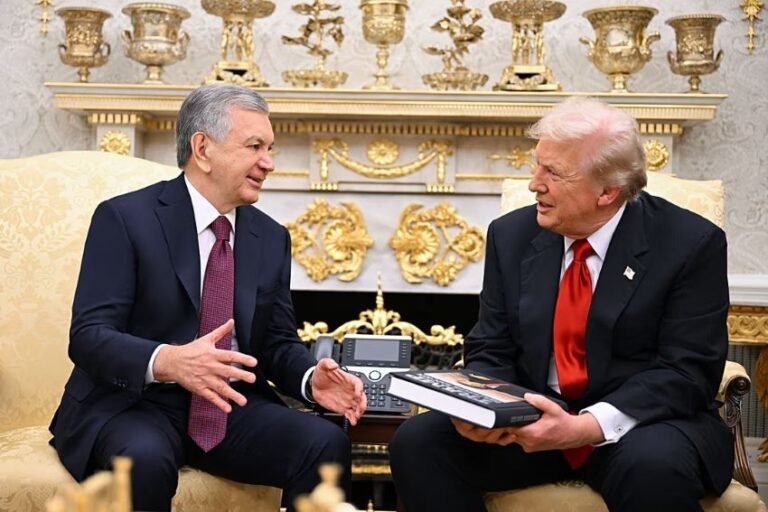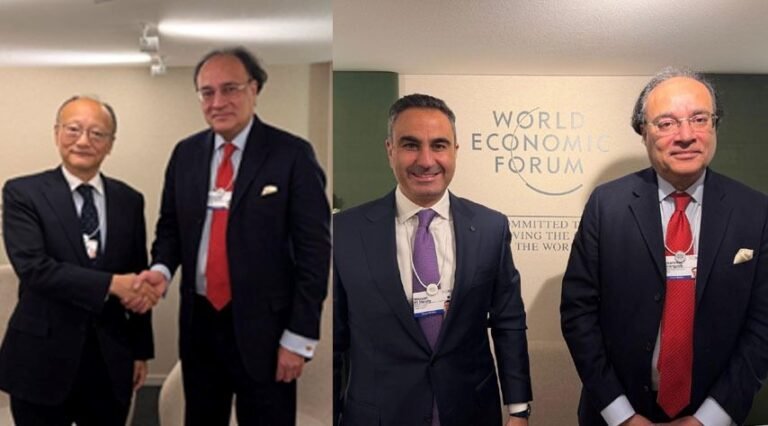Islamabad, 6 May 2023 (TDI): The 4th round of the Pakistan-China Strategic Dialogue was co-chaired by the Foreign Minister of Pakistan, Bilawal Bhutto Zardari, and State Councilor and Foreign Minister of China, Qin Gang, today in Islamabad.
The discussion contained various subjects: political, strategic, economic, defense and security, education, and cultural cooperation. Both Foreign Ministers also reviewed mutually beneficial regional and global issues.
🔊: PR NO. 8️⃣4️⃣/2️⃣0️⃣2️⃣3️⃣
— Ministry of Foreign Affairs - Pakistan (@ForeignOfficePk) May 6, 2023
4th round of Pakistan-China Foreign Ministers’ Strategic Dialogue
🔗⬇️https://t.co/ssiTwjRxul pic.twitter.com/iOpNHl72FK
Foreign Minister Zardari complimented the Chinese leadership on the success of the “Two Sessions.” He emphasized his determination to strengthen the Pakistan-China partnership more significantly.
He stressed the friendship between Pakistan and China’s historical and geopolitical significance and the mutual trust and consensus between the two countries.
The two Foreign Ministers acknowledged their delight in escalating high-level dialogue between Pakistan and China. They underlined the value of setting up crucial sectoral bilateral meetings.
They highlighted the need to strengthen Pakistan-China strategic ties in light of significant regional and global changes.
Both countries underscored their unshakable support for each other’s core national interests. China reiterated its support for Pakistan’s territorial integrity, unity, stability, and economic success.
In response, Pakistan reaffirmed its adherence to the “One China” policy. The country also offered China its unwavering support on all fundamental matters about its national interest.
Pleasure to host the State Councilor and Foreign Minister, @AmbQinGang in Islamabad and to co-chair the 4th Pakistan-China Strategic Dialogue. Held an in-depth exchange of views on entire spectrum of bilateral cooperation between Pakistan & China. Long live 🇵🇰🇨🇳 friendship. pic.twitter.com/z1VXNa3slj
— Bilawal Bhutto Zardari (@BBhuttoZardari) May 6, 2023
Sino-Pak celebrated the China-Pakistan Economic Corridor’s (CPEC) completion as the shining benchmark of Belt and Road cooperation in 2023, marking the end of the project’s ten-year construction phase.
They emphasized the benefit of CPEC for Pakistan’s socioeconomic advancement, the creation of jobs, and the improvement of living standards.
Both countries stressed the importance of the ML-1 project and pledged to hasten its implementation. They also expressed their allegiance to the high-quality development of CPEC.
Also Read: China-Pakistan Conducts Joint Press Conference
They also analyzed the significance of collaboration in industries including farming, science, technology, renewable energy, and the Karachi Circular Railway.
Both foreign ministers affirmed their commitment to Gwadar’s growth as a world-class port and a regional trade and connectivity hub. They examined the development of several Gwadar projects, including the Friendship Hospital and the New Gwadar International Airport (NGIA).
Under the Framework Agreement on Industrial Collaboration, the two foreign ministers actively promoted industrial partnerships. They emphasized that CPEC is an open and inclusive platform for win-win cooperation and welcomed third parties to realize its benefits.
Pakistan expressed gratitude to China for its comprehensive assistance package for post-flood reconstruction and rehabilitation and its economic and financial support.
Had a candid and indepth exchange on key cooperation areas and international issues of mutual interest. Look forward to working with @ambqingang to further enhance All-Weather 🇵🇰🇨🇳 strategic partnership! pic.twitter.com/3R6oEv36V2
— Bilawal Bhutto Zardari (@BBhuttoZardari) May 6, 2023
Both countries underlined their determination to combat terrorism in all its forms and manifestations. China appreciated Pakistan’s efforts and sacrifices in the battle against terrorism and extremism.
It praised Pakistan’s efforts to secure Chinese investments, personnel, and institutions and its efforts to apprehend and prosecute perpetrators of assaults against Chinese nationals.
In multilateral forums, the two sides additionally addressed regional and global issues. They also decided to intensify their coordination and cooperation to protect one another’s interests.
Furthermore, they reaffirmed their support for the UN Charter, multilateralism, free trade, and collaboration. Pakistan endorsed China’s Global Development Initiative and Global Security Initiative, while China welcomed Pakistan’s endorsement of the Global Civilization Initiative.
Both countries emphasized the need to end the conflicts that have plagued South Asia for decades. According to the Chinese Foreign Minister, the Kashmir dispute should be settled amicably under the UN Charter, relevant Security Council decisions, and bilateral agreements. Both sides resisted any unilateral moves that would make the issue more complicated.
A student of International Relations interested in National Security strategies, with a good focus on Geo-Politics, Foreign Policy, and Public & Cultural Diplomacy.
- This author does not have any more posts.

